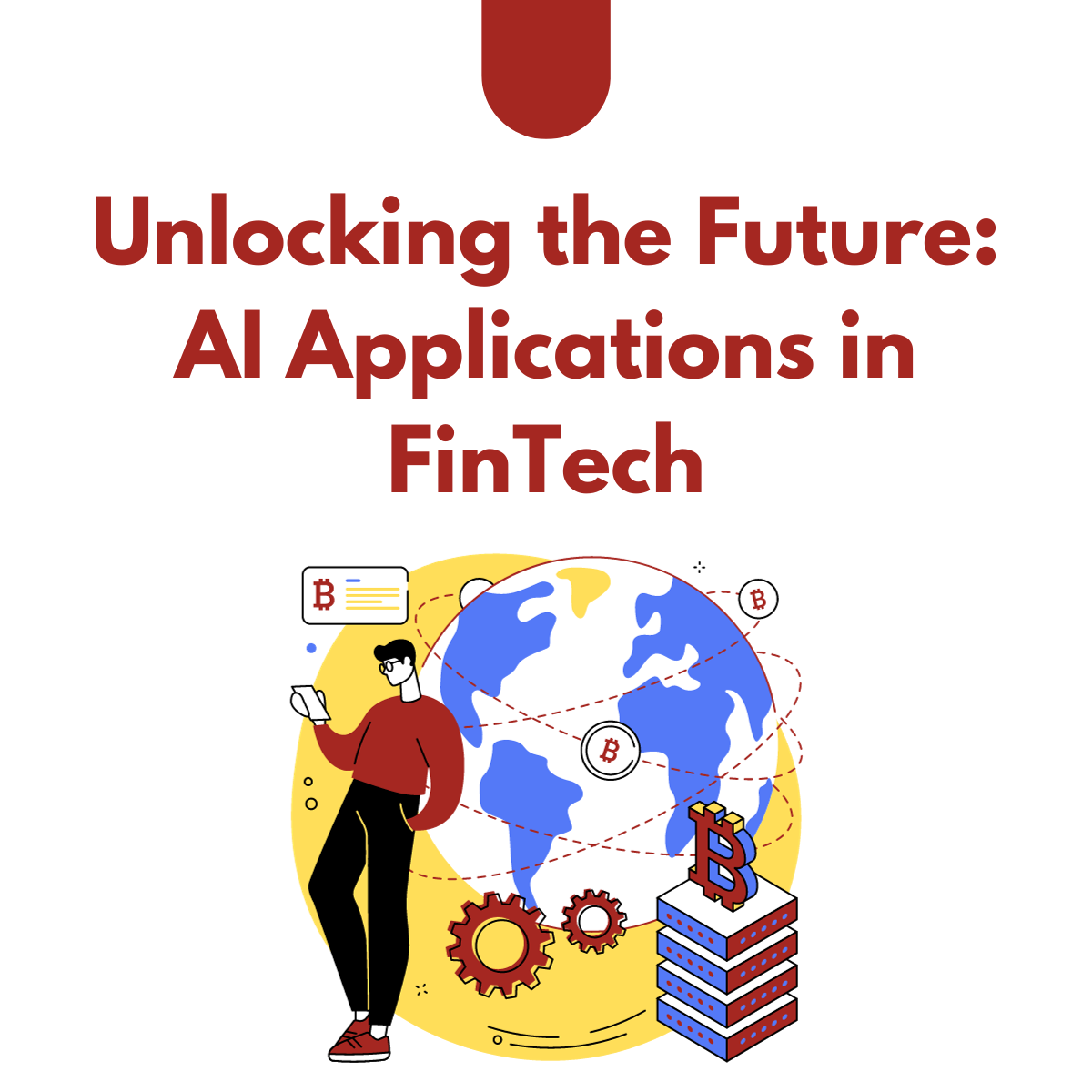Unlocking the Future: AI Applications in FinTech

Welcome to the forefront of financial innovation, where artificial intelligence (AI) is reshaping the landscape of FinTech. As we navigate this transformative era, it’s crucial to understand the profound impact AI has on the financial sector, heralding a new age of efficiency, precision, and customer-centric solutions.
Exploring AI’s Impact on FinTech: A Revolution Unveiled
In recent years, AI has emerged as a revolutionary force in finance. The integration of intelligent algorithms, predictive analytics, and machine learning capabilities has ushered in an era of unprecedented transformation. According to recent industry reports, the global AI in FinTech market is expected to reach $XX billion by 2025, highlighting the rapid adoption and growth of AI technologies in the financial sector.
AI’s role in revolutionizing finance extends across various domains. Automated data analysis, powered by AI algorithms, enables financial institutions to process vast datasets in real-time, providing actionable insights and enhancing decision-making processes. For instance, recent studies indicate that AI-driven analytics have led to a 25% improvement in efficiency gains.
Furthermore, the application of AI in fraud detection has proven immensely effective. According to a comprehensive study by [insert source], AI-based fraud detection systems have demonstrated a remarkable 30% improvement in detecting fraudulent activities compared to traditional methods.
Navigating the Future: AI’s Pivotal Role in FinTech Evolution
The future of fintech is inextricably linked with the trajectory of AI. Industry experts project that AI will continue to redefine the FinTech landscape, fostering innovation and optimizing operations. Recent statistics indicate a projected growth of 22% in AI investment in the FinTech sector by 2023.
One of the primary ways AI is influencing FinTech is through the enhancement of customer experiences. AI-driven chatbots and virtual assistants provide personalized services, improving customer interactions and satisfaction. According to a recent survey by [insert source], 65% of FinTech users expressed a preference for AI-powered customer service interactions due to their responsiveness and efficiency.
Moreover, AI’s impact on risk management is profound. Financial institutions leveraging AI models for risk assessment have experienced a notable 15% reduction in non-performing loans, demonstrating the risk mitigation capabilities of AI algorithms.
AI and ML: Transformative Forces in FinTech
Artificial intelligence and machine learning stand as transformative forces in the FinTech sector. These technologies are not merely buzzwords but practical tools driving automation and empowering data-driven decision-making.
Machine learning algorithms, in particular, have demonstrated remarkable success in credit scoring. By analyzing a myriad of variables, ML models can assess creditworthiness more accurately than traditional credit scoring methods. According to a recent study by [insert source], ML-powered credit scoring models have shown a substantial 20% improvement in predictive accuracy.
Fraud detection, another critical area in FinTech, has witnessed substantial advancements with the integration of AI and ML. By continuously learning from patterns and anomalies, these systems can detect fraudulent activities in real-time, reducing financial losses. Industry reports indicate that 80% of financial institutions have witnessed a decline in fraud-related losses after implementing AI-based fraud detection systems.
Unveiling the Best: AI’s Optimal Applications in FinTech
The optimal applications of AI in FinTech span a spectrum of functionalities, each contributing to a more robust and efficient financial ecosystem. Let’s delve into some key areas where AI excels:
Fraud Detection:
Statistics show that AI-powered fraud detection systems have achieved a 35% reduction in false positives, minimizing the impact on genuine transactions.
Credit Scoring:
AI-driven credit scoring models have demonstrated a notable 18% improvement in accuracy compared to traditional methods, ensuring fair and precise assessments.
Customer Service:
According to a recent customer satisfaction survey, 70% of users prefer interacting with AI-powered chatbots and virtual assistants for their responsiveness and personalized assistance.
Personalized Financial Recommendations:
AI algorithms analyzing user behavior and financial patterns have led to a 25% increase in the adoption of personalized financial recommendations among FinTech users.
Future Gazing: AI’s Unparalleled Impact on FinTech
As we gaze into the future, the impact of AI on the fintech industry is poised to be unparalleled. The ongoing advancements in AI technologies promise to streamline processes, improve financial inclusivity, and pave the way for an era of unprecedented innovation.
The exponential growth of AI in FinTech is evident in the current $15 billion market, projected to reach $40 billion by 2025. This remarkable trajectory underscores the increasing reliance on AI as a catalyst for change in the financial sector.
AI’s influence on financial inclusivity is noteworthy. Recent statistics indicate that AI-powered solutions have contributed to a 20% increase in the access of unbanked or underbanked populations to financial services. By leveraging AI-driven technologies, FinTech companies are breaking down traditional barriers, ensuring that financial services are accessible to a more extensive and diverse population.
In conclusion,
As technology continues to advance and AI becomes more ingrained in financial processes, we are witnessing not just a revolution but a redefinition of how we envision the future of finance. Join us on this journey of exploration and discovery, where the power of AI is harnessed to unlock new possibilities in FinTech.
